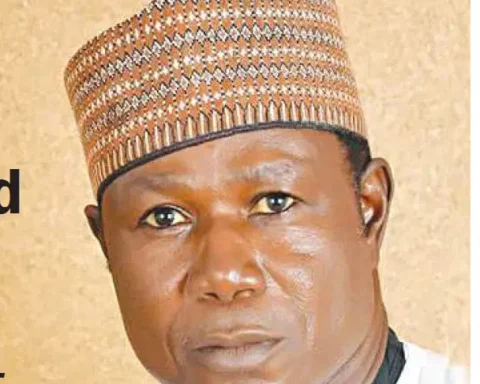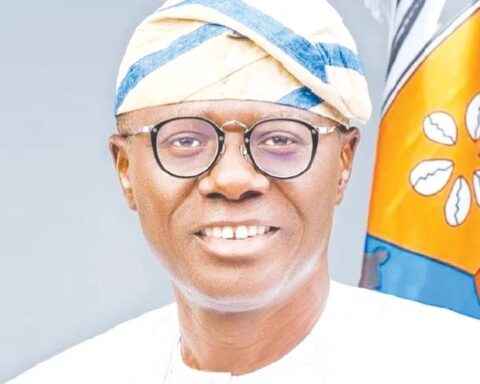By Angela Atabo
The Nigeria Police Force (NPF) says it has recorded significant progress in strengthening community trust, improving communication, and enhancing accountability through the Mutual Accountability and Community Scorecard (MACS) Initiative.
Police Public Relations Officers (PPRO) stated this during a two-day workshop on building trust and promoting police reforms in Akwa Ibom, organised by International Alert in collaboration with NPF.
The workshop, with the theme: “Strengthening Police-Community Relations for Effective and Accountable Policing in Nigeria,” was supported by the UK Foreign, Commonwealth and Development Office (FCDO).
The community scorecard is a social accountability tool that allows service seekers and security and justice providers to assess, reflect, relate and collaborate mutually.
This has become important against the backdrop of lack of trust stemming from past negative interactions, alleged corruption, or perceived bias.
In his remarks, CPS Benjamin Hundeyin, Force Public Relations Officer (FPPO), said the workshop was a continuation of a shared journey between NPF and International Alert aimed at strengthening the relationship between the Police Force and the community they served.
Hundeyin, represented by the Deputy FPPRO, CPS Victor Isuku, explained that the first phase of the project gave the police a clear message on communication and collaboration.
“When the police and the people work together, when there is honesty, trust, and openness, the police will be able to take action. When we start having a health-use kind of communication, our communities become safer and more peaceful.
“We have learned that accountability goes both ways and that lasting security comes from collaboration and not confrontation. Today marks another step forward.
“We are building on what we started in 2023 creating more opportunities for communities to have a voice and for the police to listen to learn and to respond better,” Hundeyin said.
He said that it was the duty of police image makers to bridge understanding gap to communicate with empathy and to show through their actions that the NPF was prepared to serve and protect with integrity.
Hundeyin further explained that the current Police Act 2020 addressed the concerns that pitched the police against the community, particularly the youth like issues of stereotyping, bail, arrest, search of persons, and arrest by proxy among others.
He therefore, appealed to youths to take time to go through the Act to know what to do whenever their rights were being violated.
The FPRO said the NPF had not only strengthened its personnel and units but also created the complaint response units across all commands for easy access to the police.
He urged Nigerians to visit the NPF website to get the phone numbers and contacts of all the PROs to seek redress among others.
Speaking on the impact of the project, DSP Maureen Chinaka, Abia Command Police Public Relations Officer, said the mutual accountability initiative had been a journey of learning, unlearning, and relearning and tackling the blame game syndrome.
Chinaka said,“Instead of throwing stones, we learned to work in unity. Instead of pointing fingers, we came together and we learned to hold one other’s hands and walk the way of peace, unity, accountability, friendship, and security.”
“The initiative has improved our ability to listen, understand, and represent the interests of the public,” she said. It’s not just about image management but about communication, empathy, and shared responsibility for security.”
Chinaka noted that the programme had strengthened collaboration between the command and local communities, helping the police better understand social dynamics and respond more effectively to citizens’ concerns.
Also speaking on the success of the MAC initiative, CSP Ahmed Wakil, Bauchi Command PPRO, said the initiative provided a data-driven framework for identifying crime trends and improving responses across the state.
He explained that by introducing key performance indicators, the command was able to map out security challenges in different local government areas, with particular focus on sexual and gender-based violence (SGBV) in Ningi Local Government Area.
“Before now, there was a culture of silence where women were not free to speak on issues of sexual and gender-based violence. But with the coming of this initiative, victims have started voicing out their grievances, enabling us to prosecute offenders.”
He revealed that Bauchi now ranked among the states with the highest prosecution and conviction rates for SGBV cases, describing it as a major achievement for justice and police-community collaboration.
The Chairman, Board of Trustees, International Alert, David Nussbaum, said that in Nigeria, International Alert supported the police, policymakers, and citizens to advance reforms that made security more responsive and community-driven.
Nussbaum said this was because the organisation believed that sustainable peace required collaboration, transparency, and mutual accountability between the state and the people.
“Through initiatives like the mutual accountability and community scorecard, we are helping to bridge divides, improve communication, and rebuild trust in public institutions,” he said.
Speaking on the project, the Country Director of International Alert, Mr Kingsley Udo, said that across Nigeria, citizens continued to call for a policing system that was transparent, accountable, and responsive to community needs.
“When there is no communication, when there is no relationship, conflicts are bound to happen. Everywhere you hear and read of fracas between law enforcement and citizens and sometimes you ask what is behind all of this.
He said it was against this backdrop that International Alert started the initiative, adding that the second phase of the project supported PPROs across seven states and the Federal Capital Territory.
Udo said the states were Abia, Bauchi, Benue, Borno, Kaduna, Zamfara, and Edo to implement the MACS framework.
He said that the outcome so far had been impressive as it strengthened stronger dialogue between police and citizens, increased trust, and practical solutions to improve accountability and service delivery.
He said that the Nigeria Police Force has, in recent years, had taken bold steps toward reform and improved professionalism.
According to him, sustaining the reforms however required deliberate collaboration, communication, and accountability between the police and the communities they serve.
“Through the MACS Initiative, International Alert, in partnership with the Nigeria Police Force and with the support of the UK Foreign, Commonwealth and Development Office (FCDO), has been working to strengthen this bridge.
“This is to ensure that police reform is not only discussed but also felt and owned at the community level.”
Udo said the workshop would not only deepen stakeholder’s collective understanding of police reforms or the implementation of the reforms itself, but would also strengthen the partnership between the police and the community.
“This will pave the way for a more peaceful, inclusive, and accountable Nigeria with the knowledge that the police is your friend.”
The Commissioner, Ministry of Information, Akwa Ibom, Aniekan Umanah, commended International Alert for bringing the peace building initiative to Akwa Ibom, adding that the state happened to be one of the most peaceful places in Nigeria.
Umanah, represented by Mr Akparawa Edet, the Permanent Secretary of the Ministry, lauded President Bola Tinubu’s effort in tackling insecurity, and urged Nigerians to support his effort.
The Paramount Ruler of Ibesikpo Asutan, Edidem III, Clement Ekpeyong, stressed the need to improve police welfare, adding that personnel who are well catered for would perform their job better.
“Police are human beings and policing goes along with being satisfied, healthy and being equipped with arms and ammunition before you can fight and before you can perform, logistics have to be in place.” he said
Follow us on all social media platforms @dailyquery for news and analyses around the globe.



























